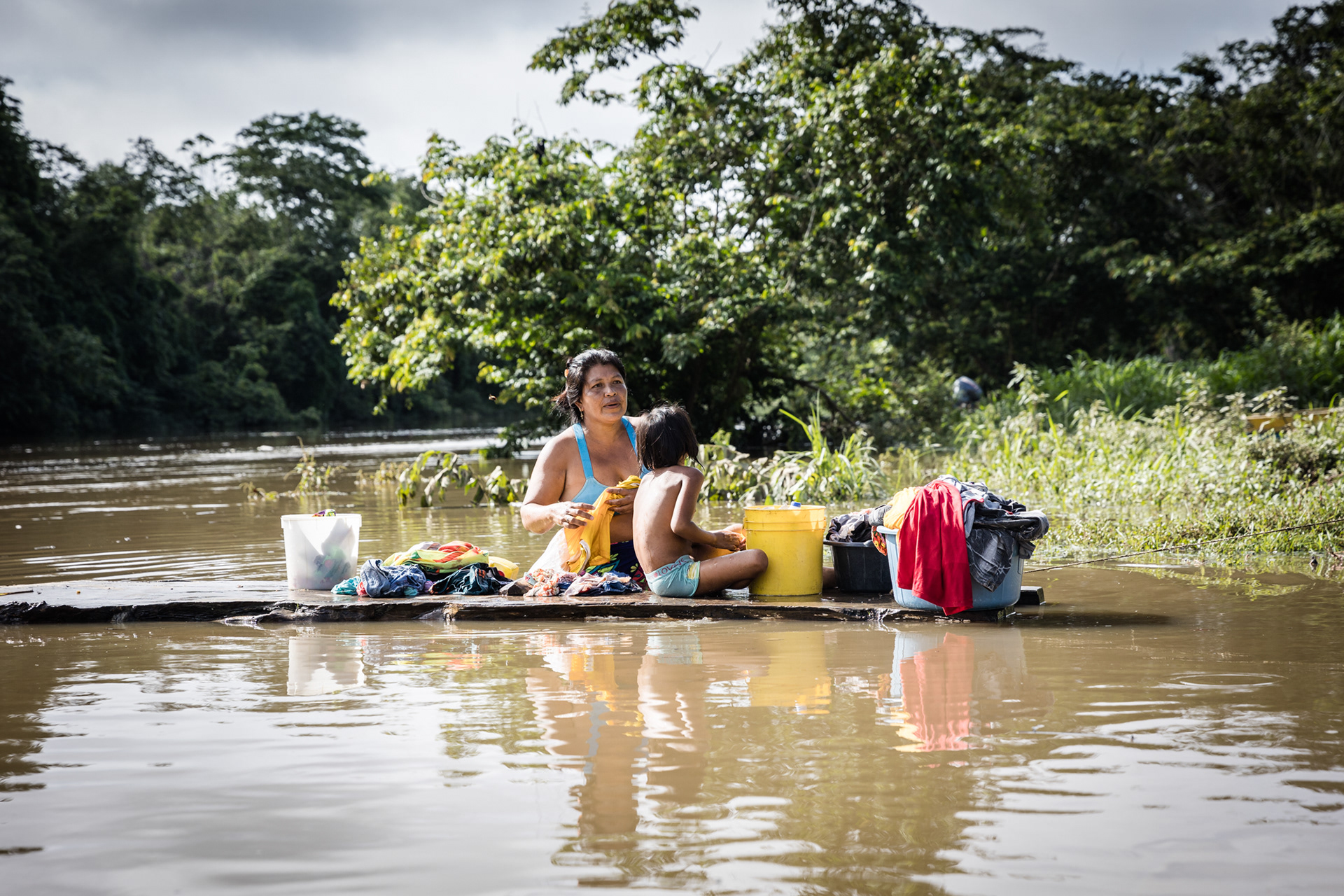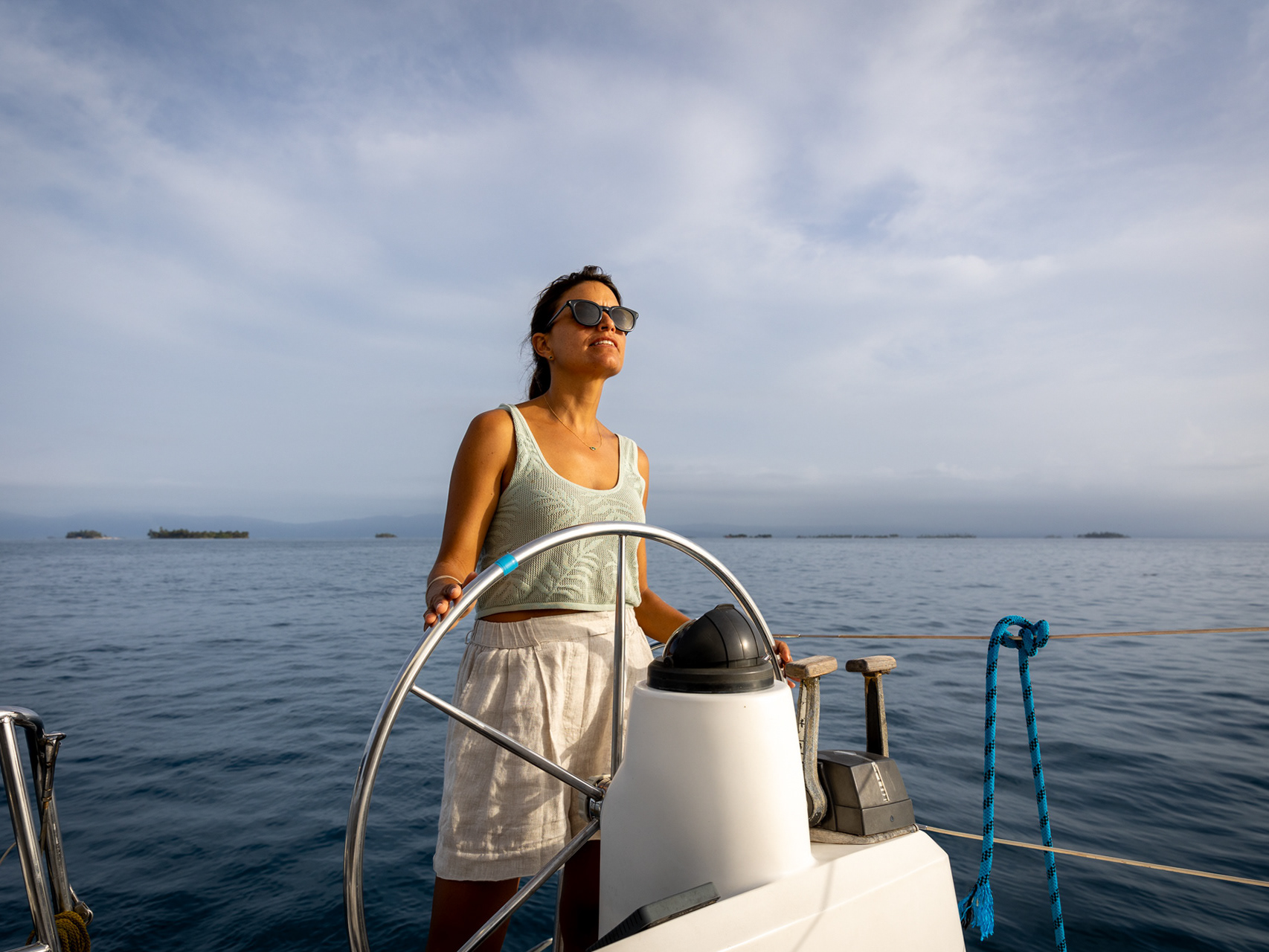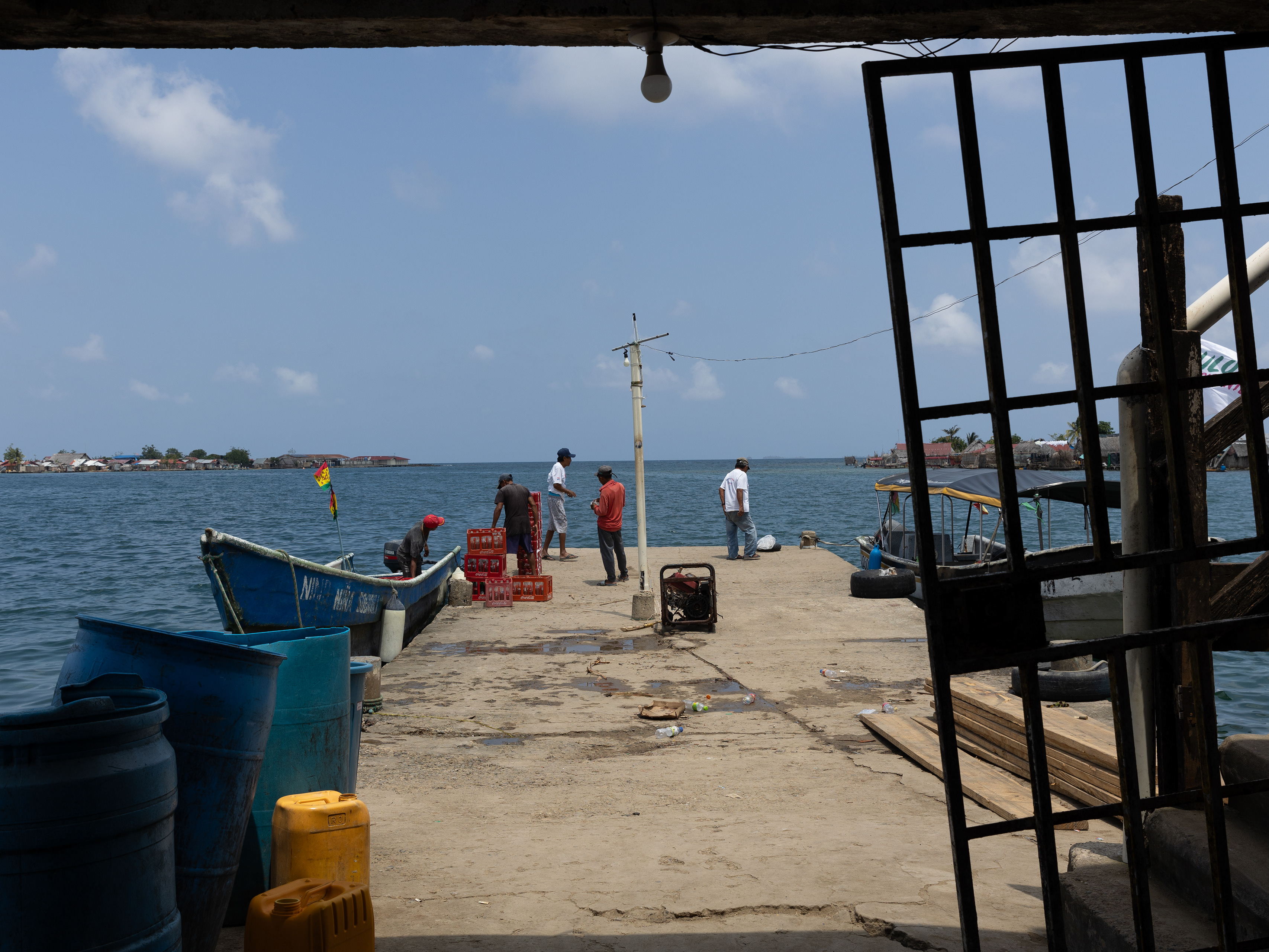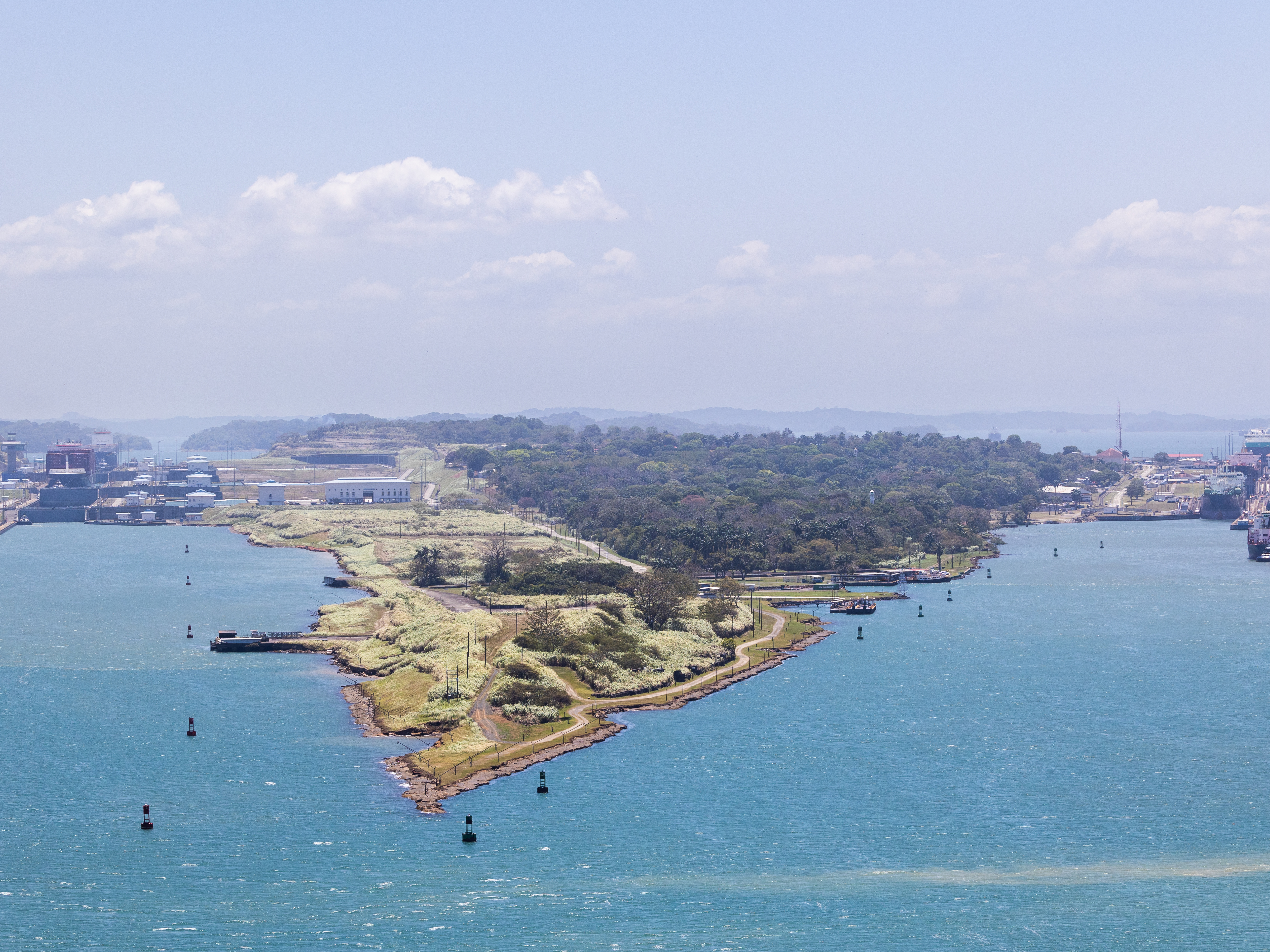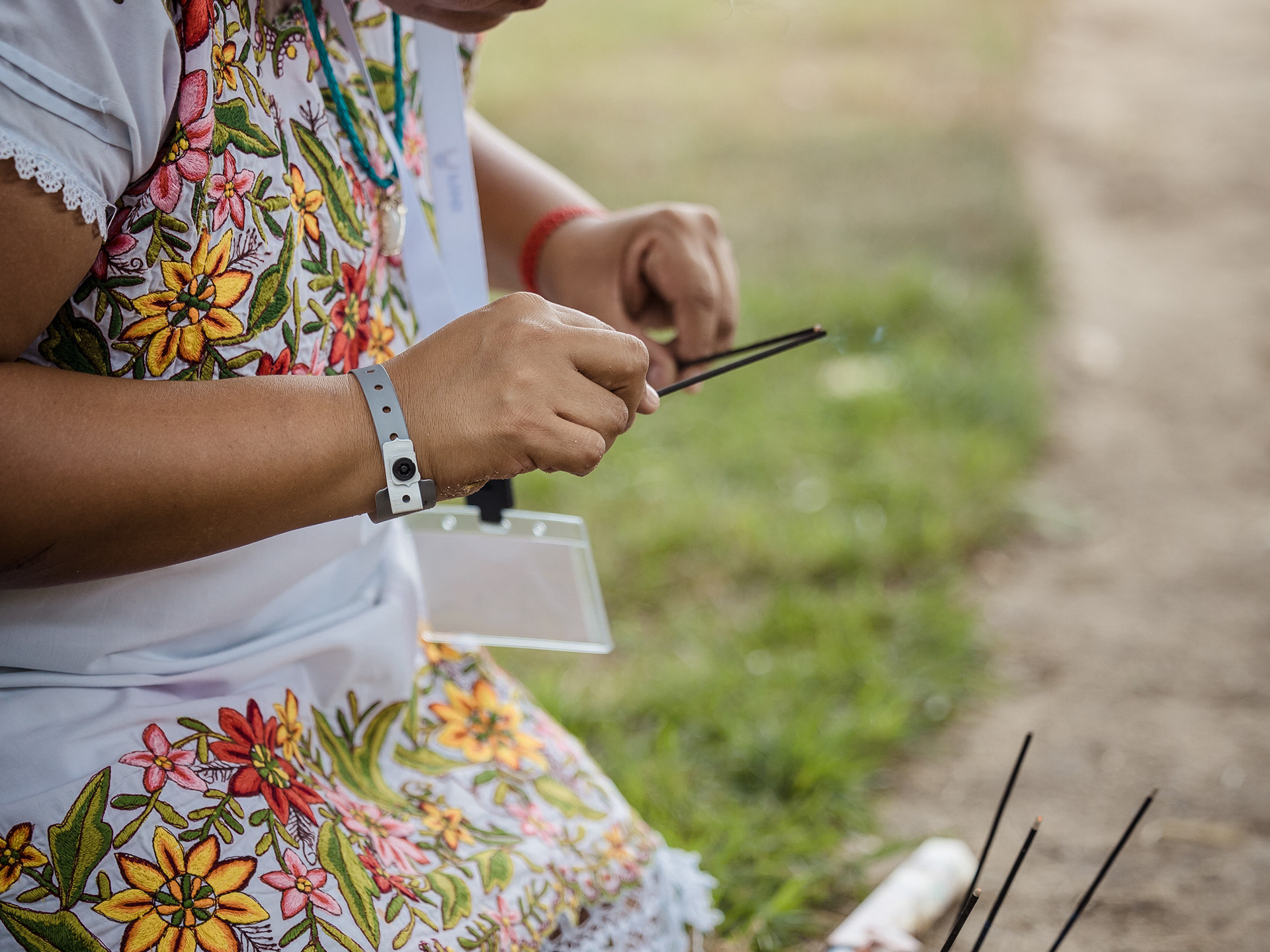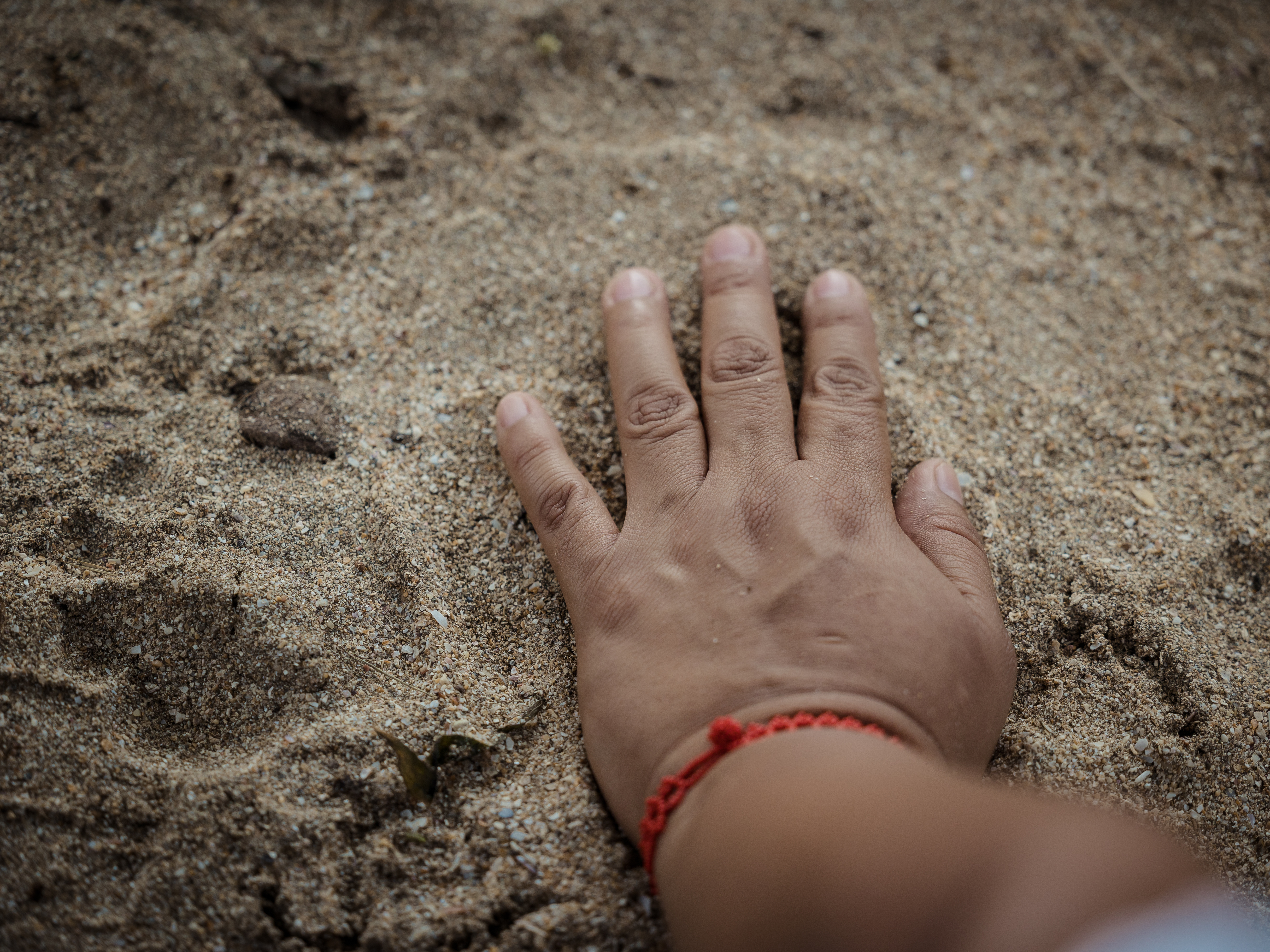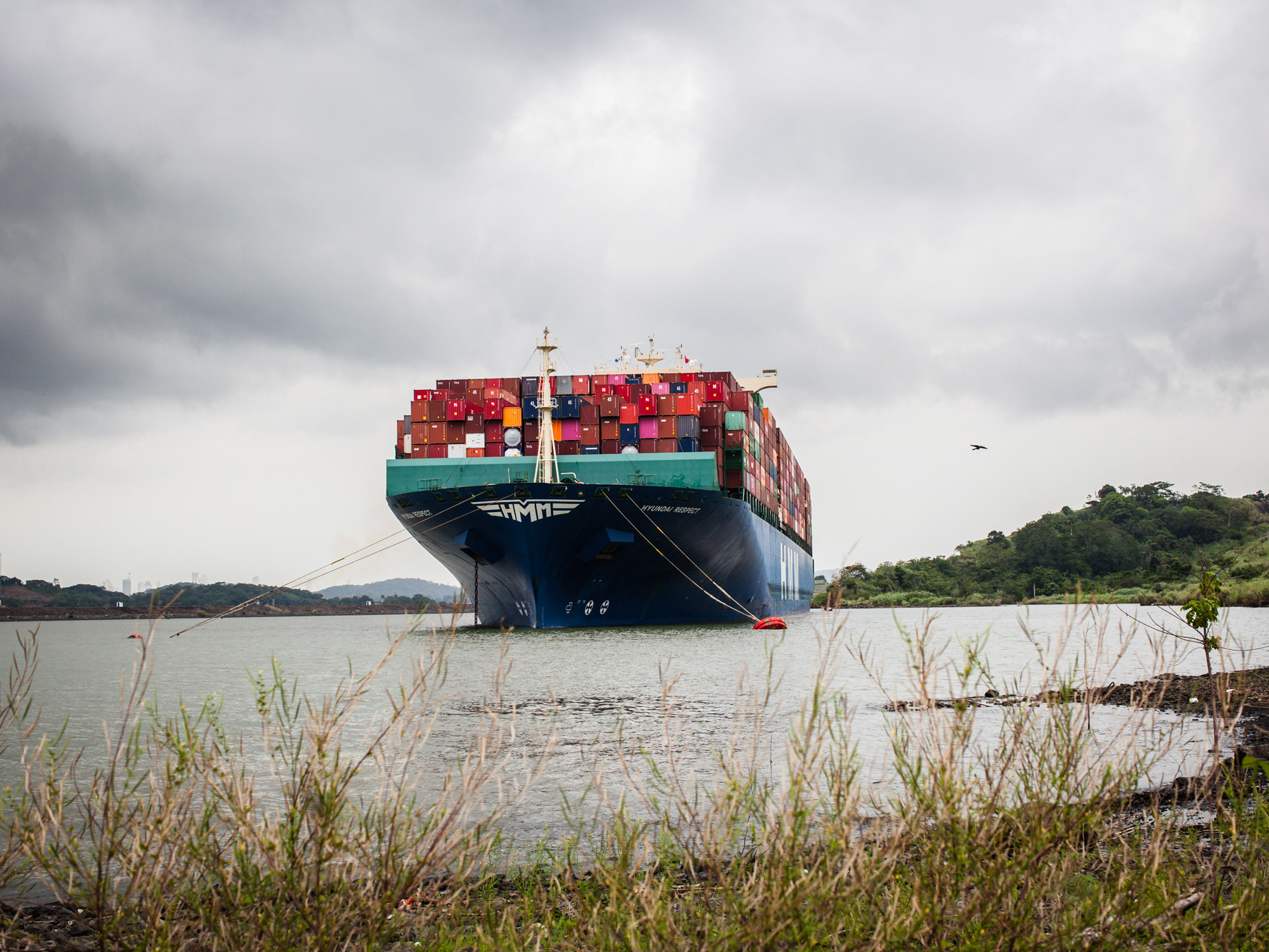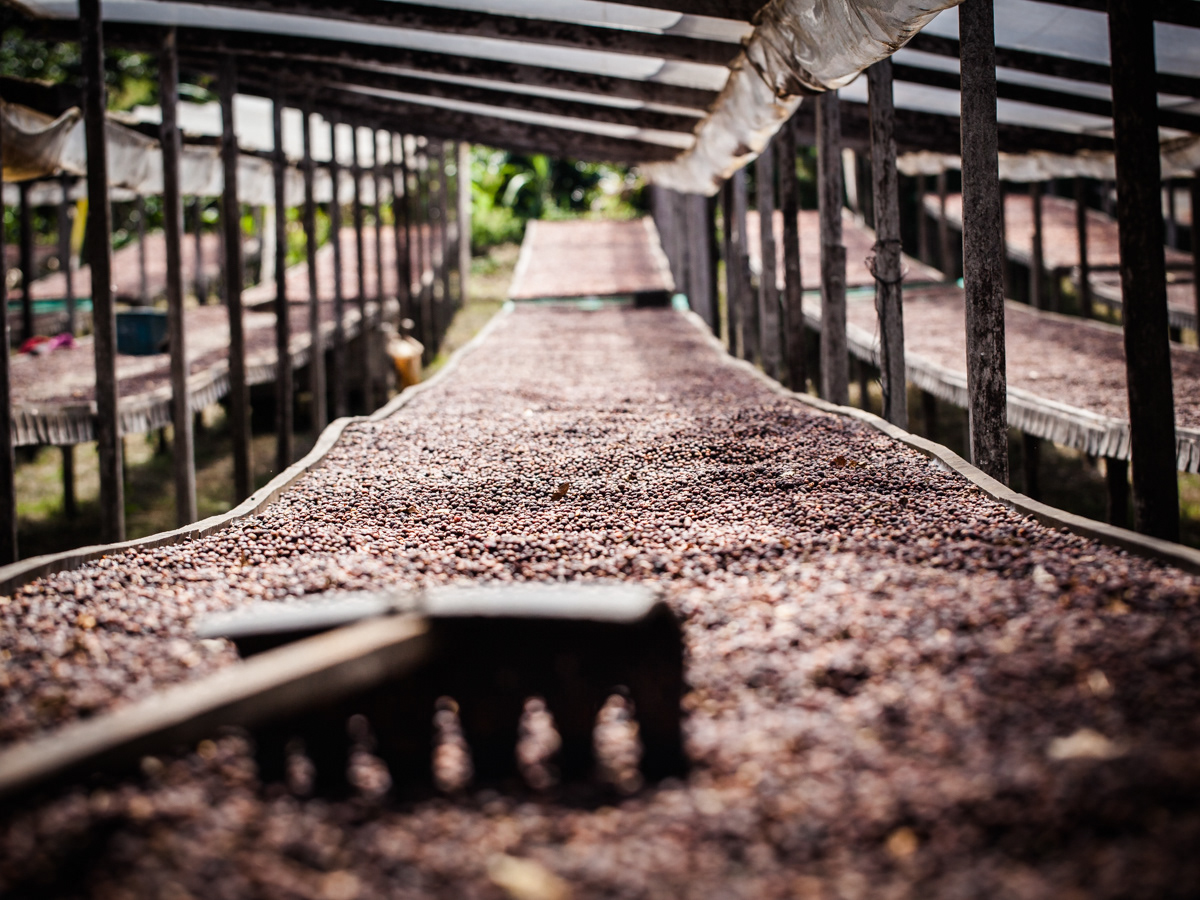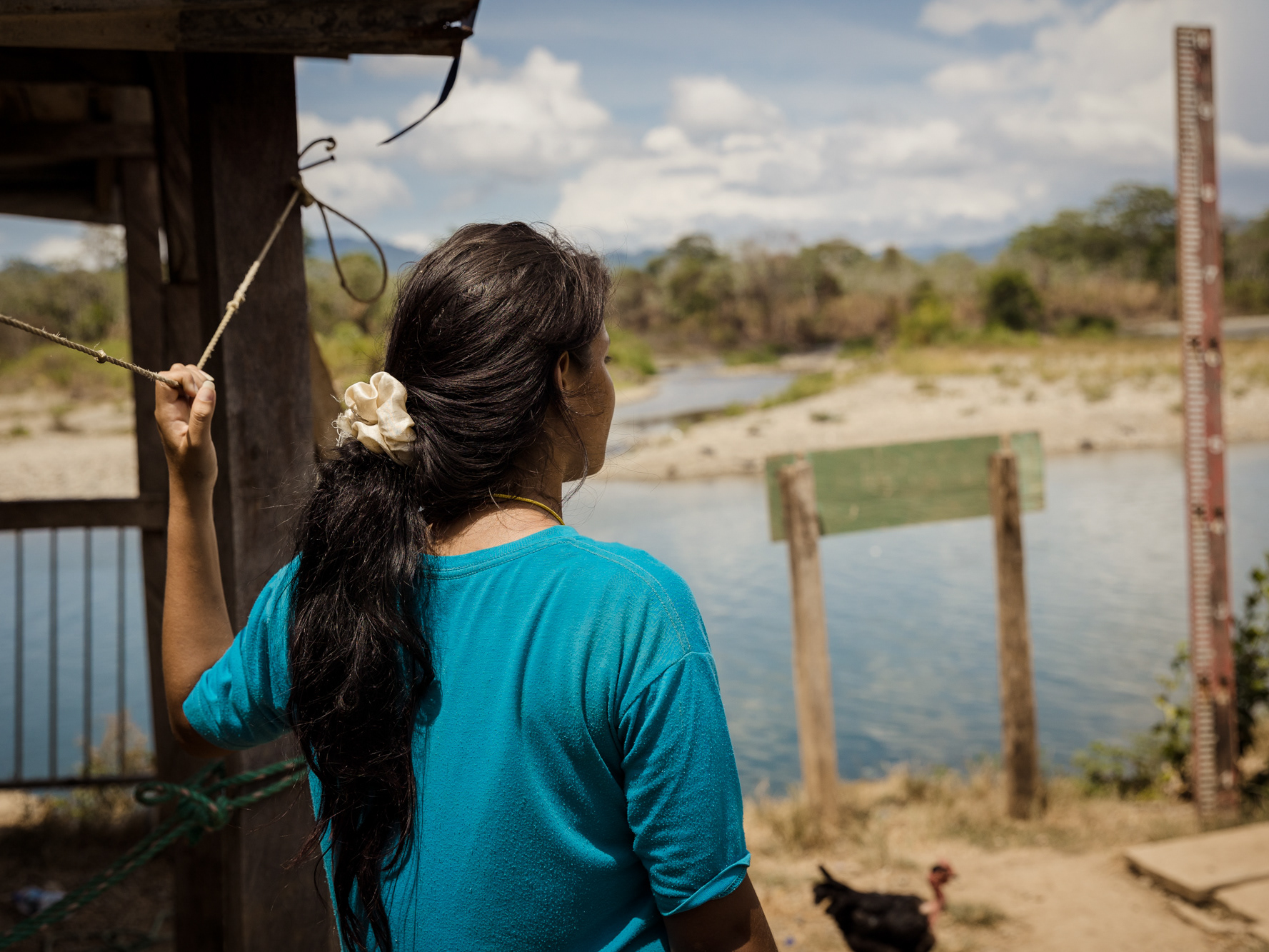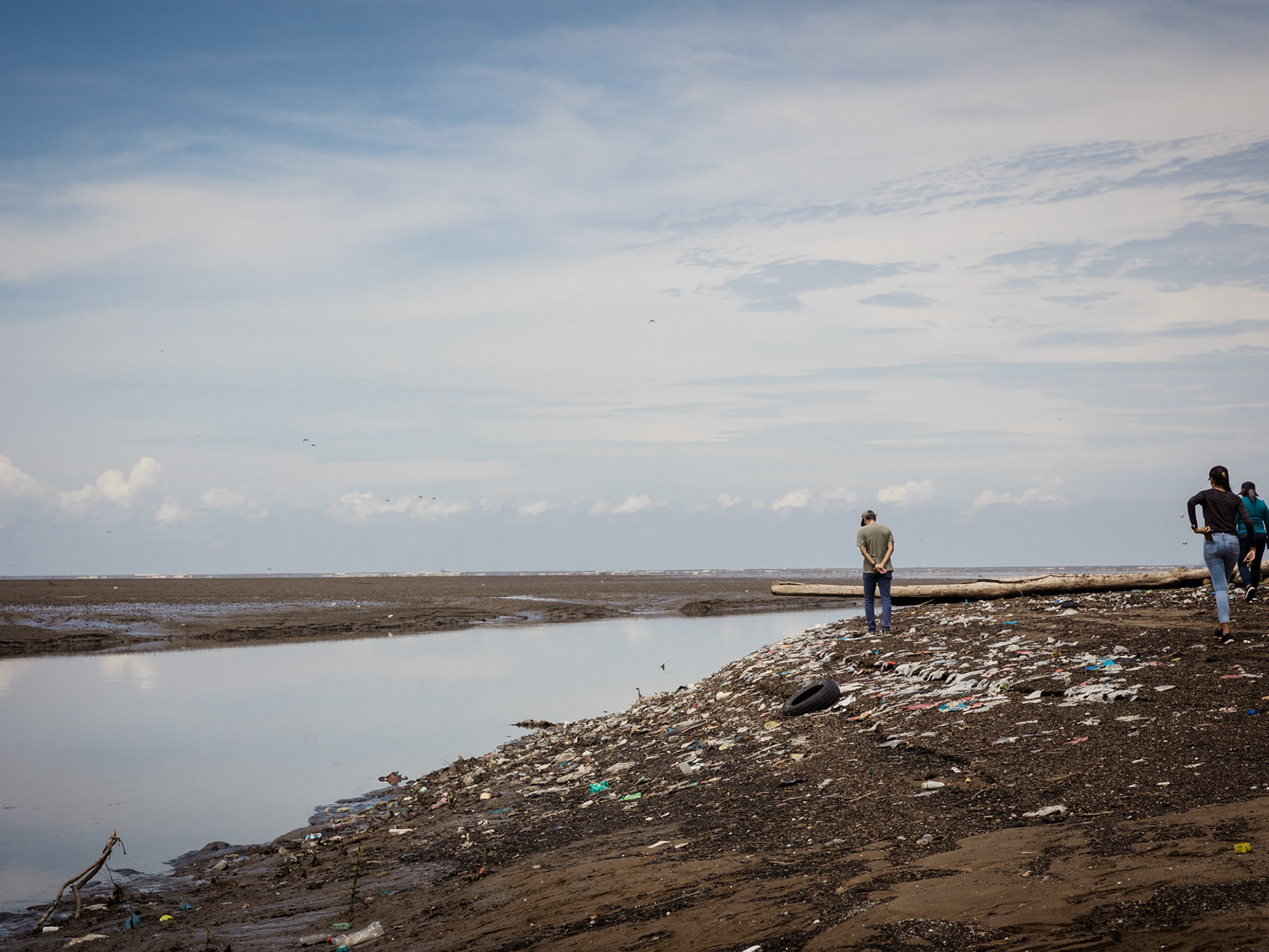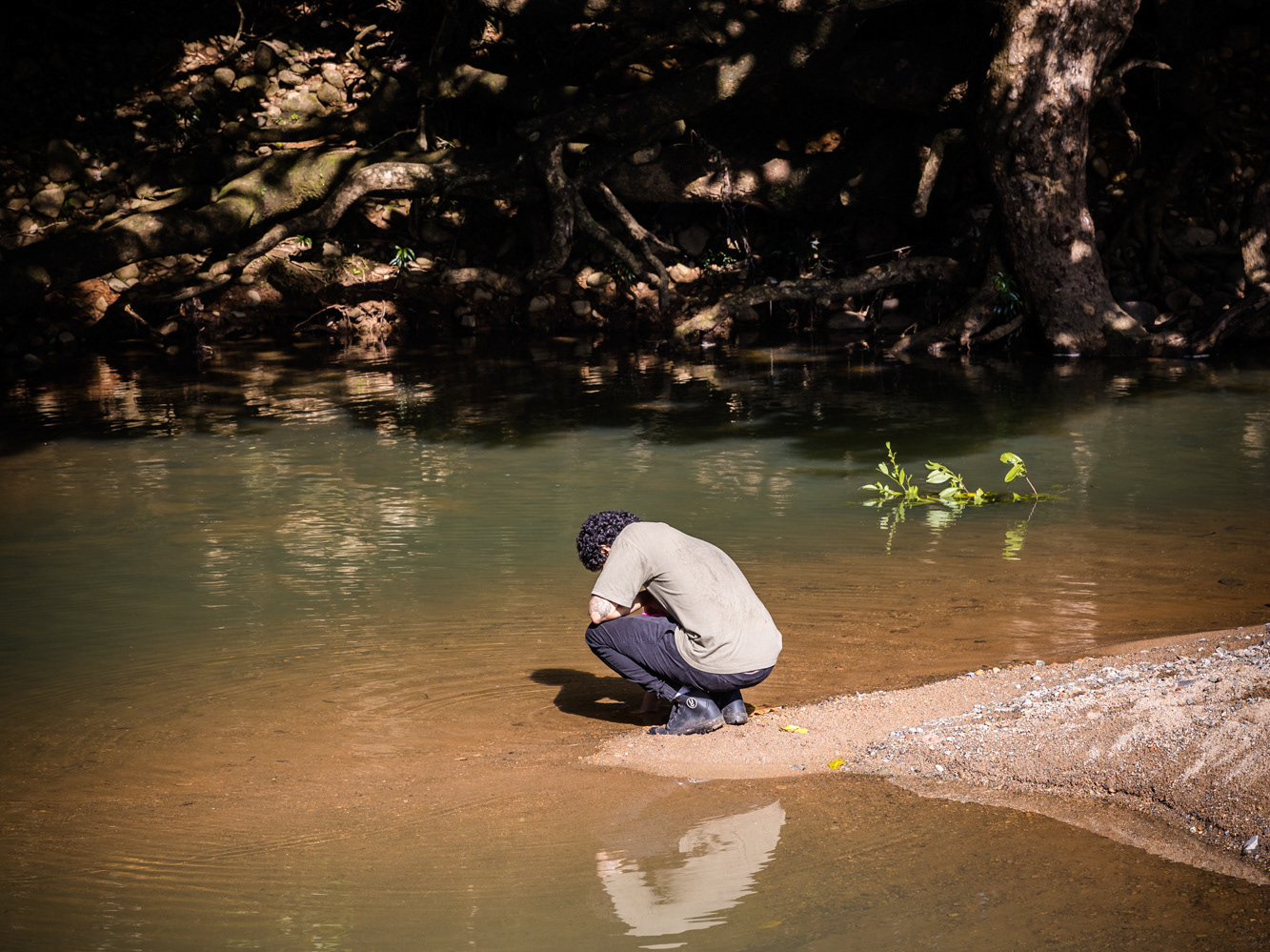
An Emberá guide sits at the helm, watching as another canoe filled with migrants navigates the Turquesa River.
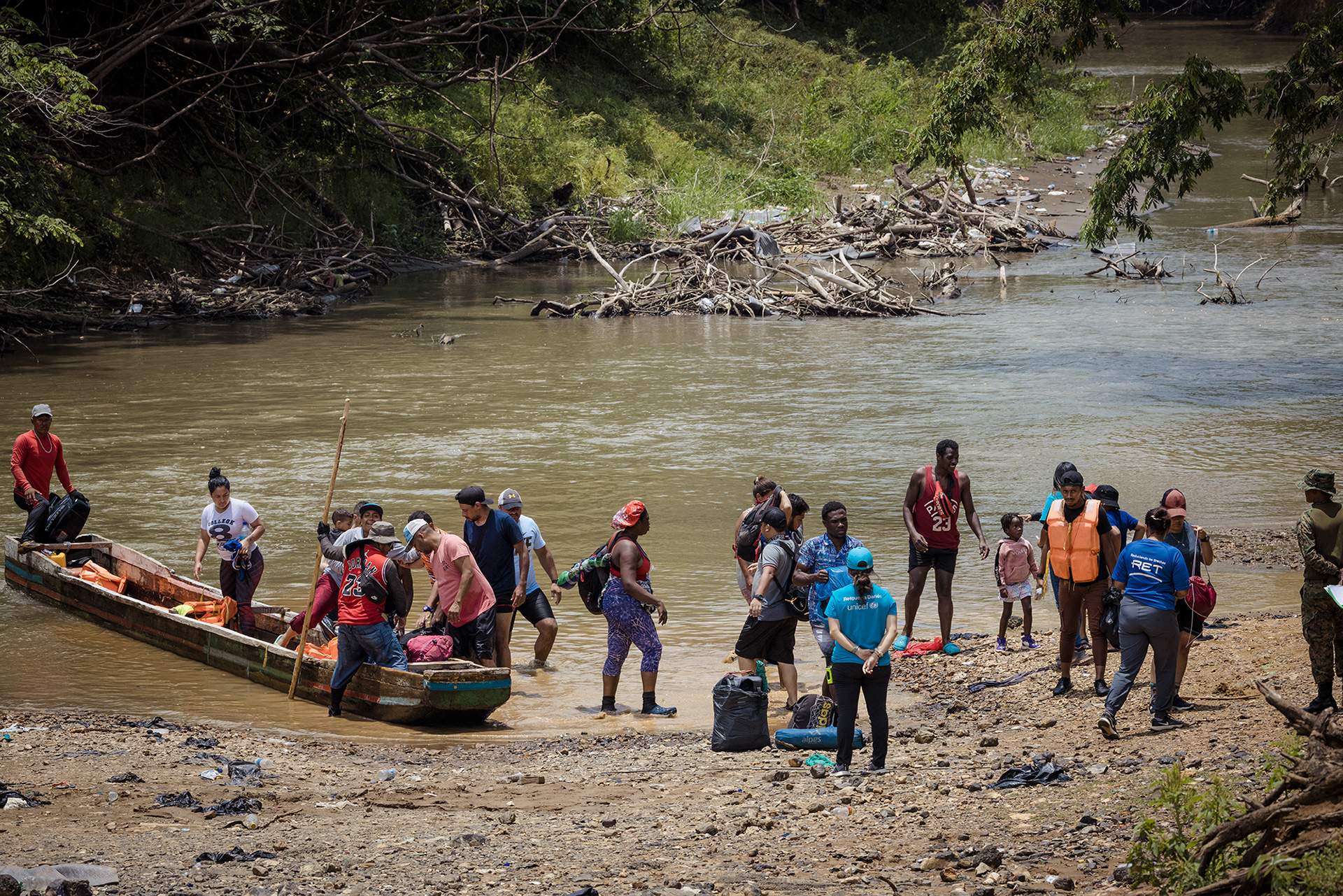
Migrants disembark from a canoe at the banks of Las Lajas Blancas camp, continuing their journey to the US.
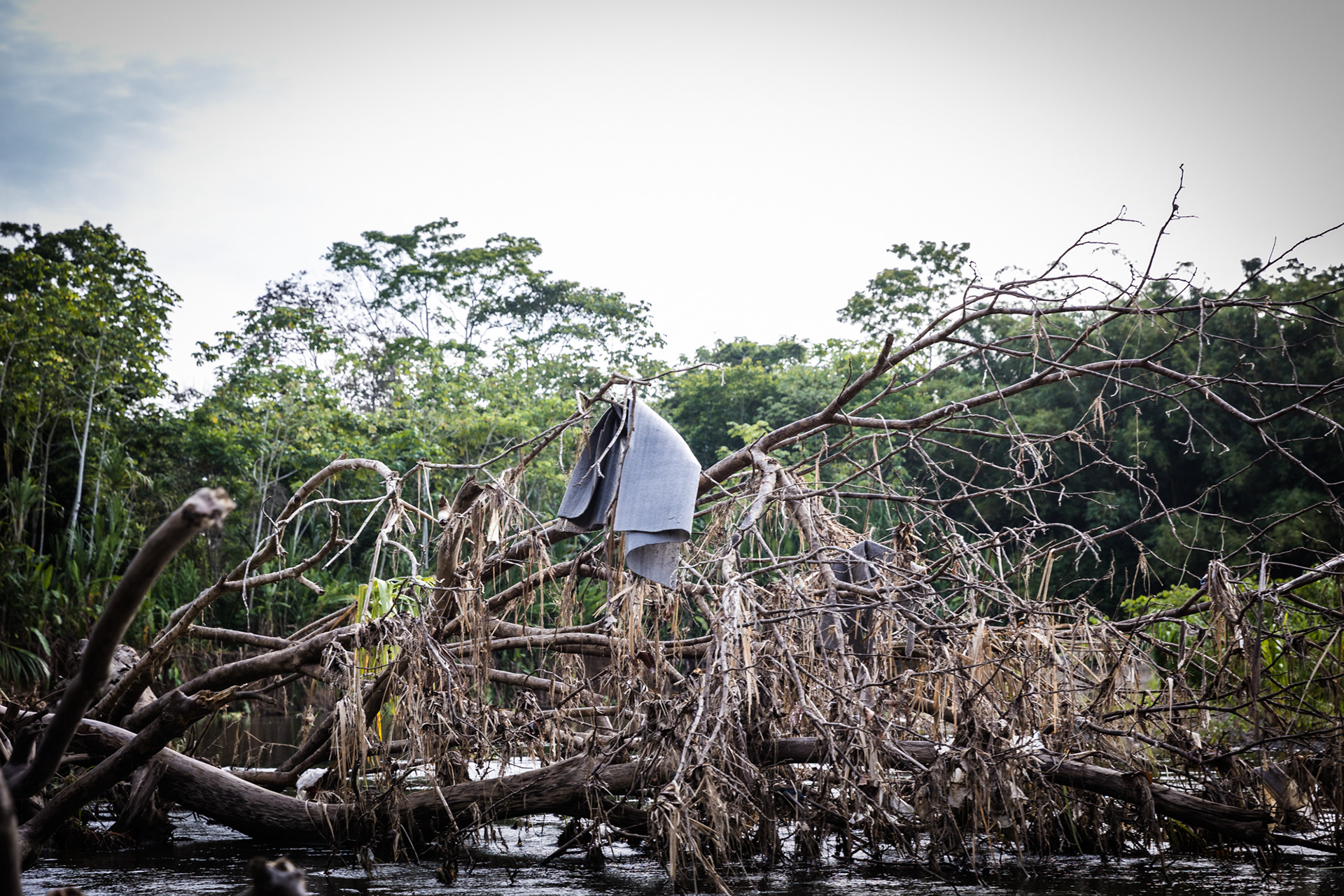
A foam mat tangled in branches of a fallen tree, part of the debris left behind by migrants in the Darién waters.
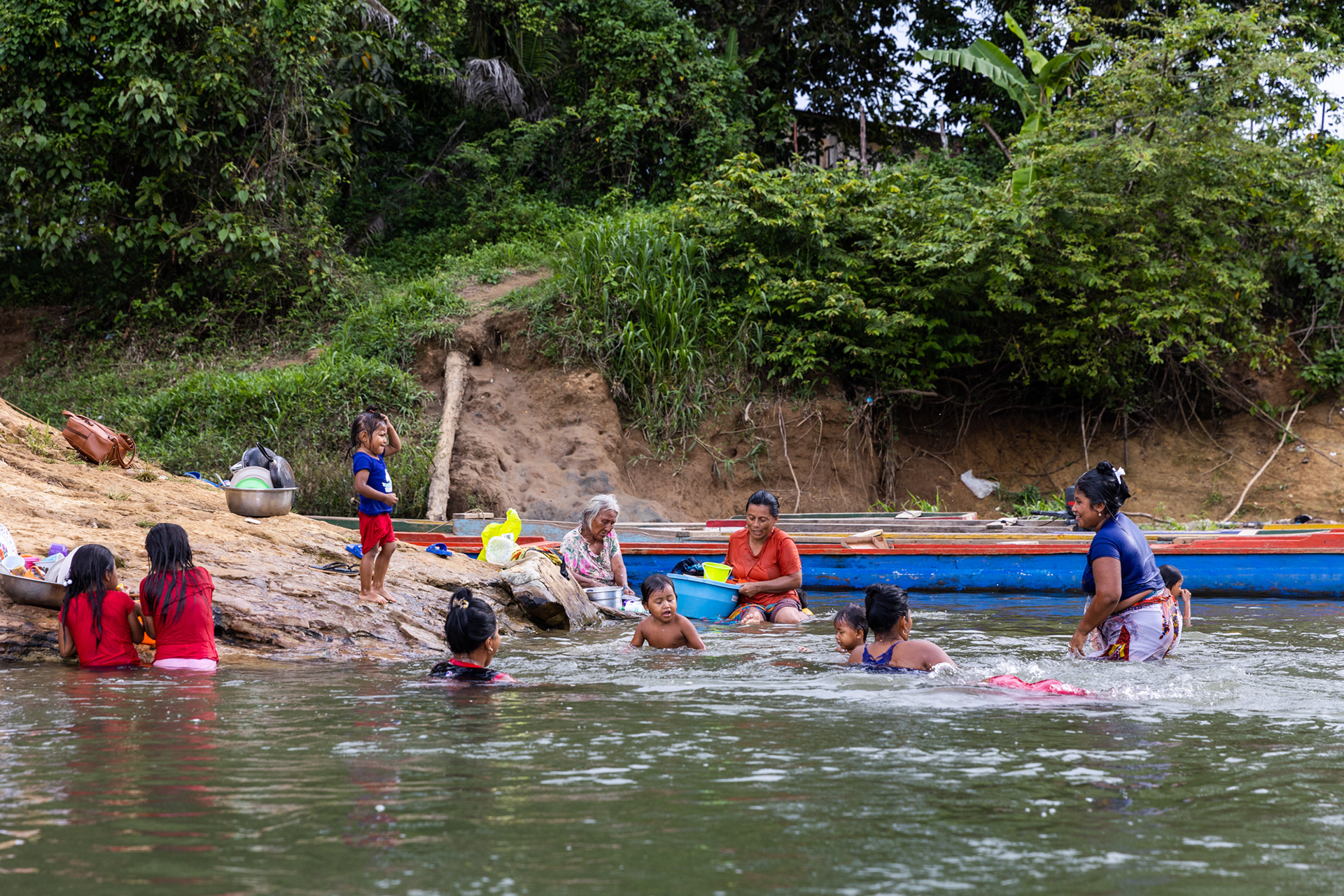
Emberá-Wounaan community members go about their daily routines on the Turquesa River, their lifeline for water and survival.
An Emberá man solemnly views photos of deceased migrants found along the perilous Darién trail.
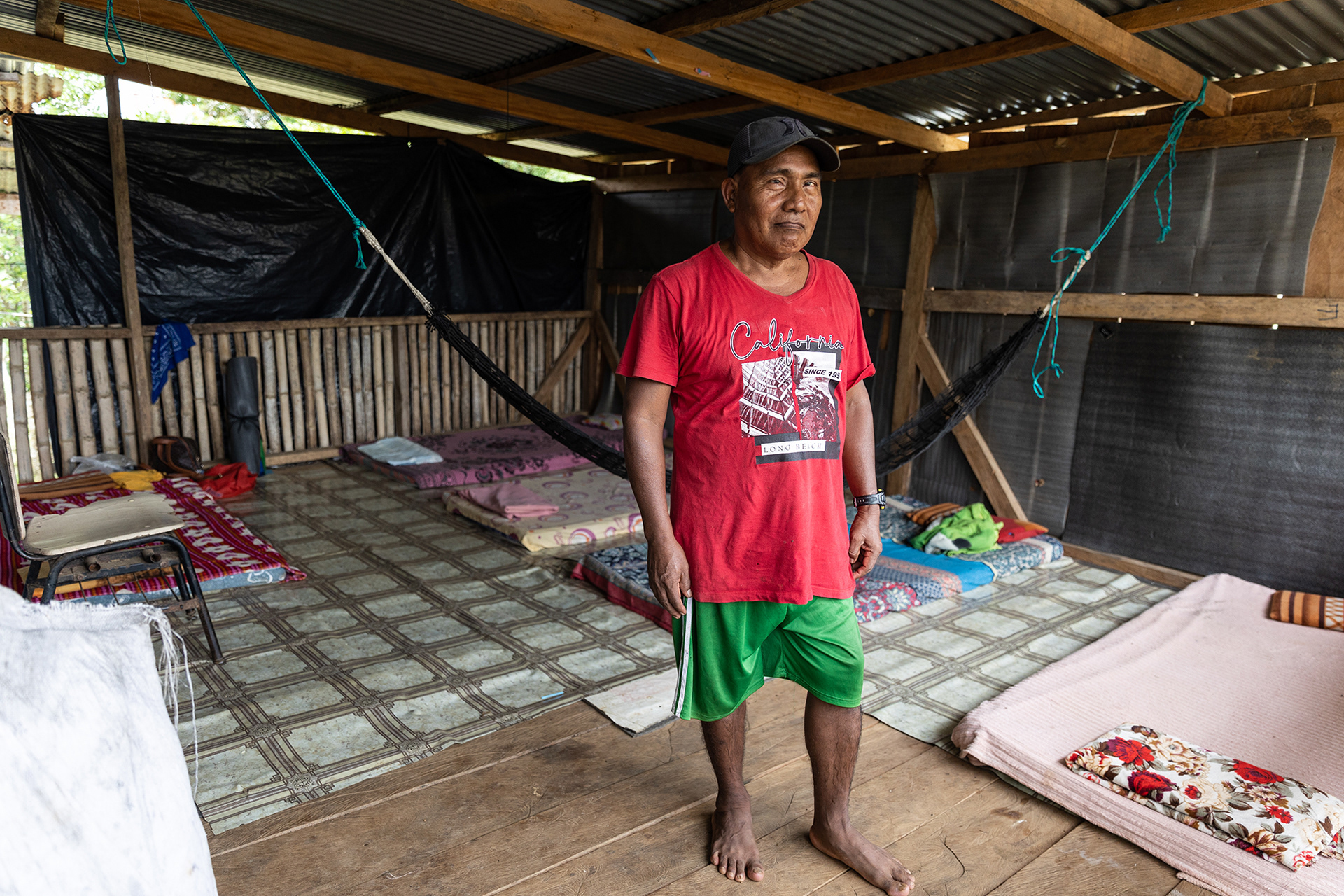
An Emberá man stands in his hostel, where migrants can rent mats and hammocks for $5 a night.
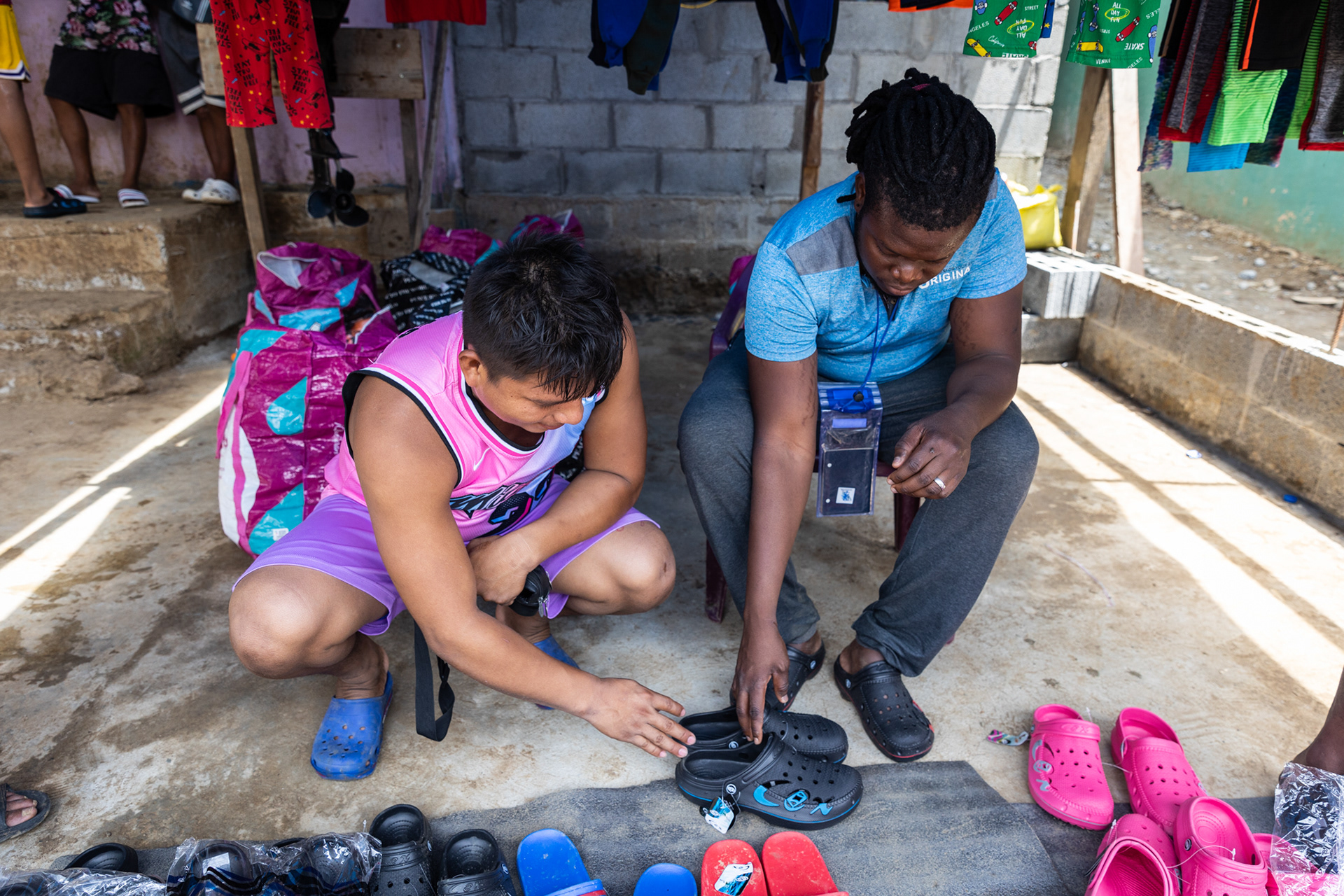
A young man in his store assists a migrant shopping for shoes.
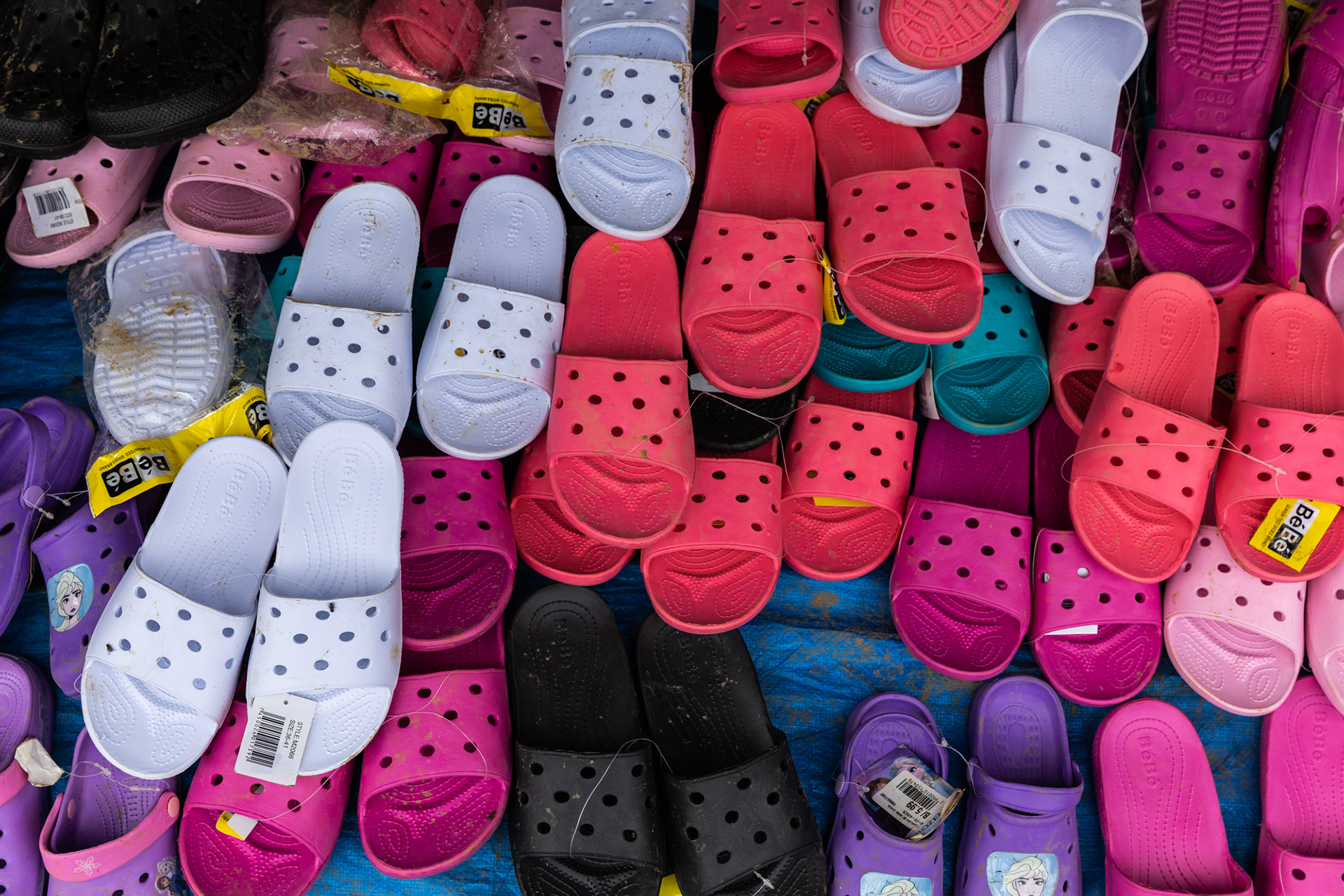
A selection of colorful crocs, the most popular footwear choice for migrants passing through.
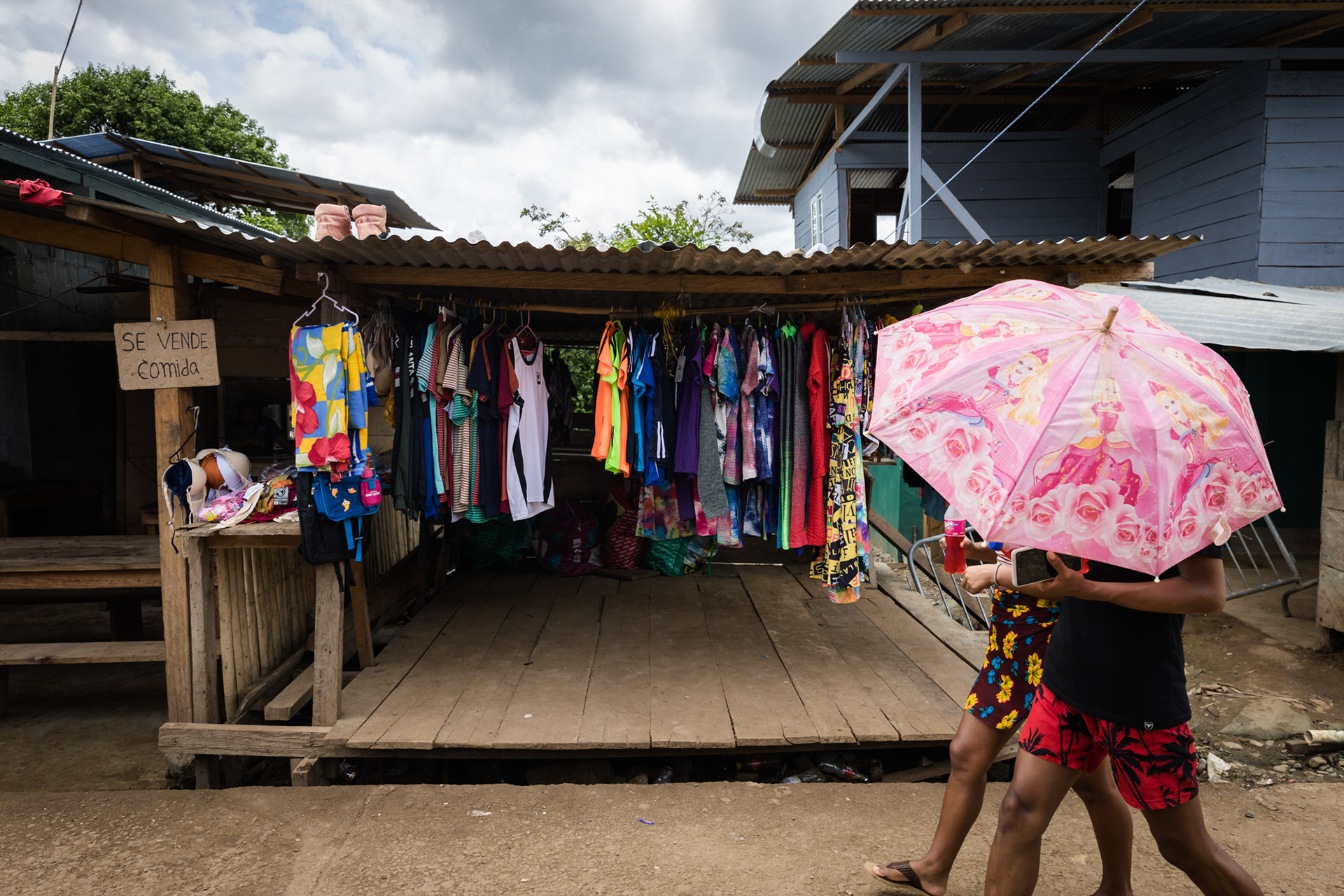
A clothing store in the Bajo Chiquito community, one of the many local businesses thriving due to migrant demand.
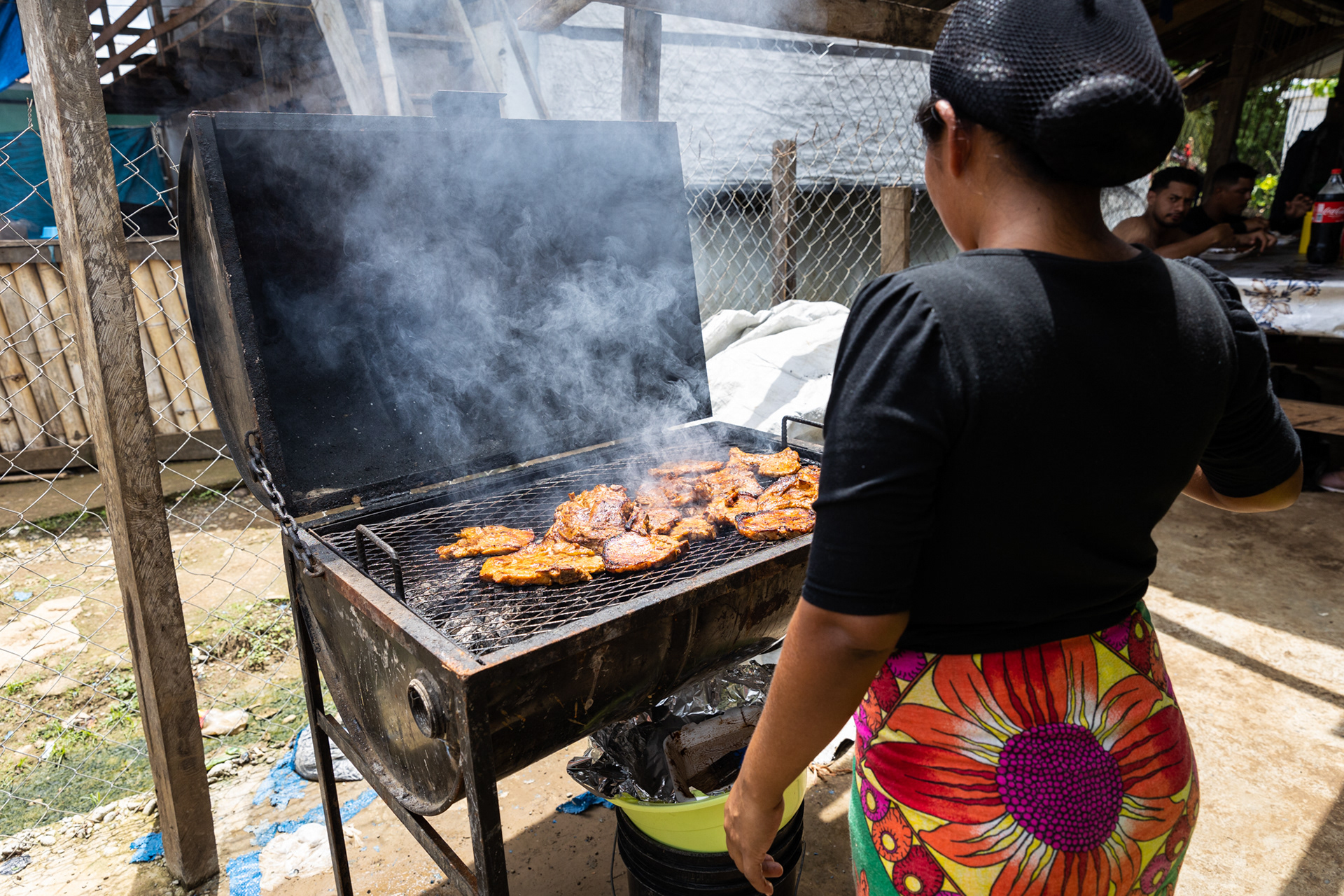
An Emberá woman grills chicken at her small restaurant, a business that sustains her family, benefiting from the passing migrants.
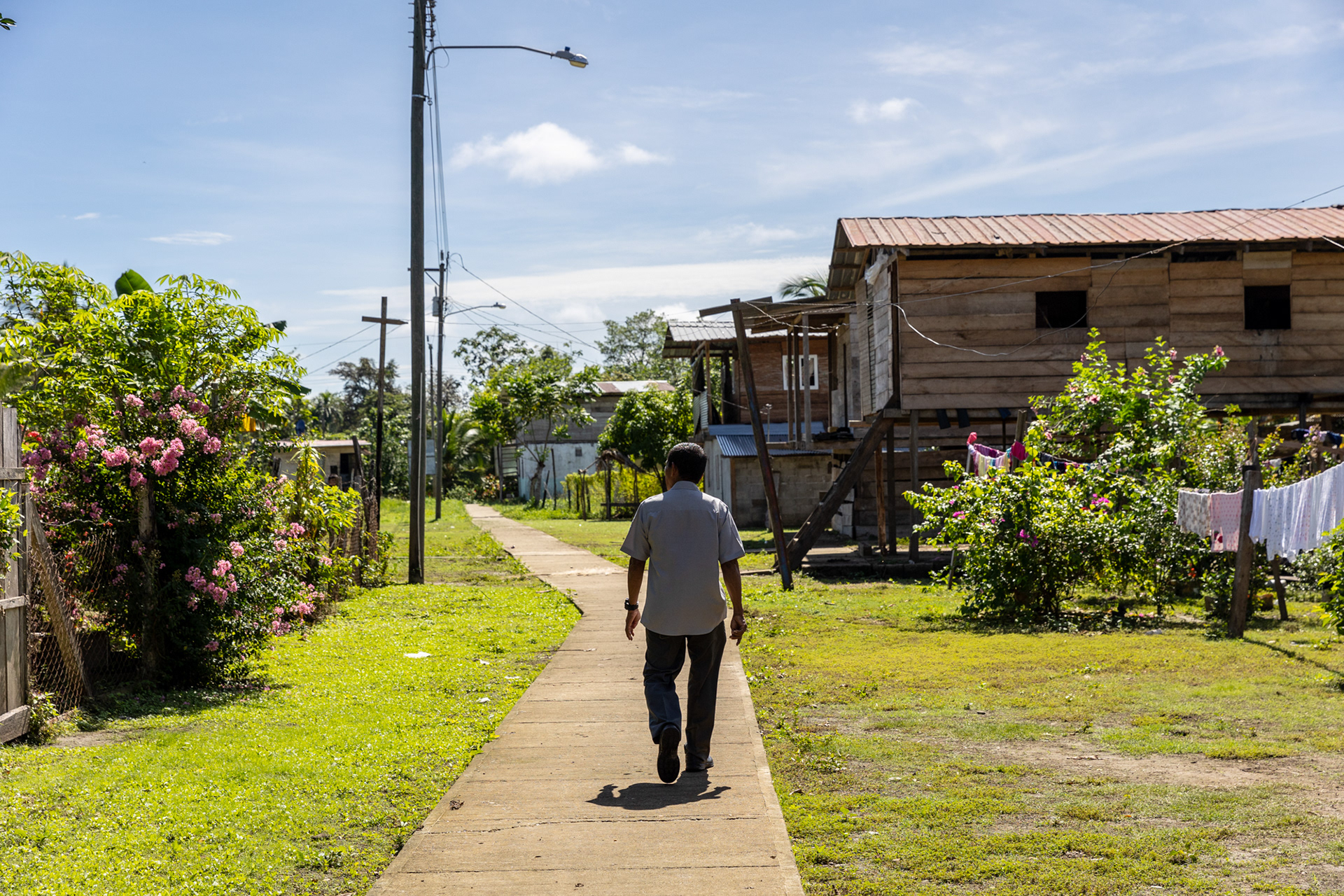
Leonides Cunampia, chief general of the Emberá region, walks through a community that serves as a resting spot for migrants.
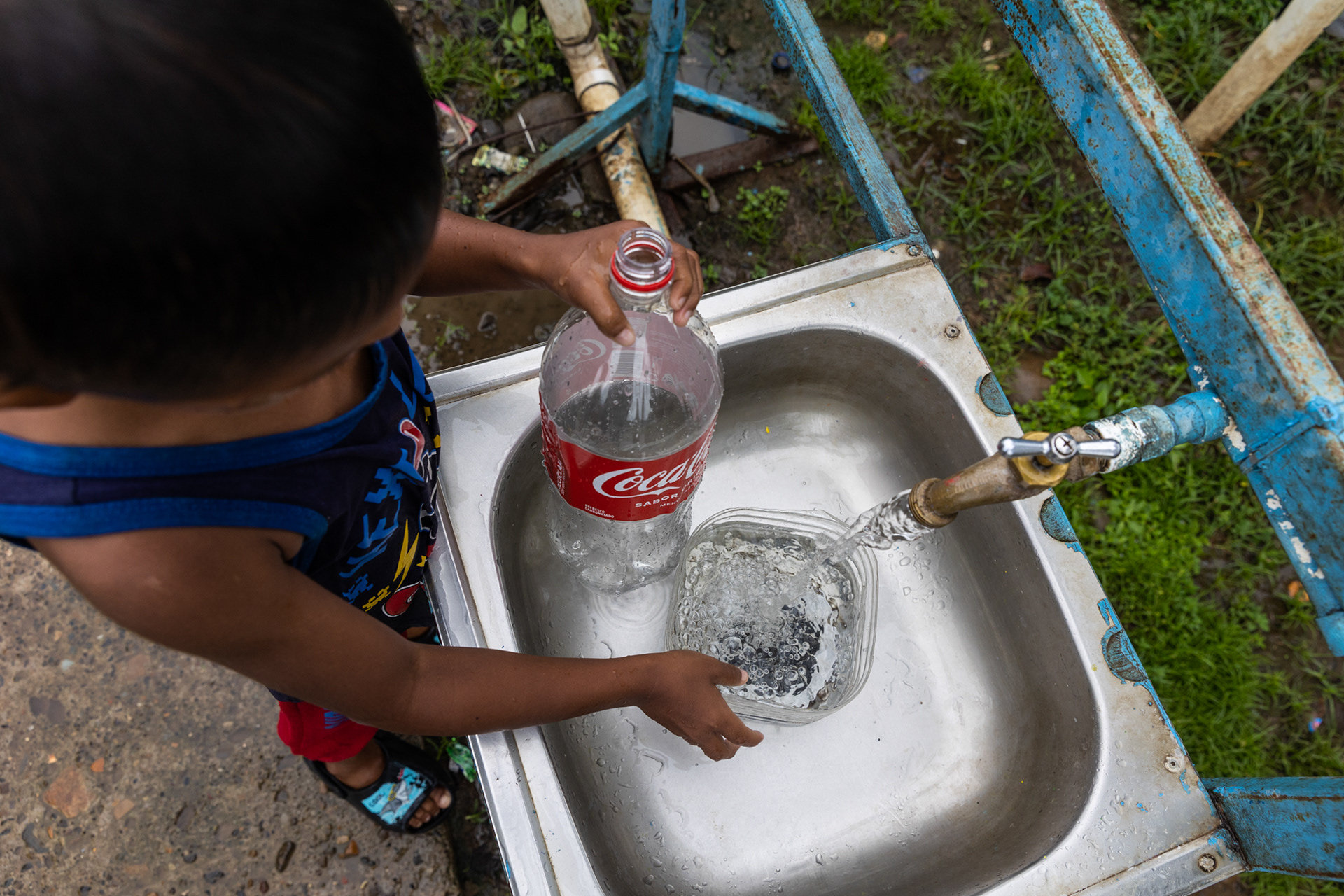
A child gathers water from a faucet system installed by international aid organizations, improving infrastructure in the community.
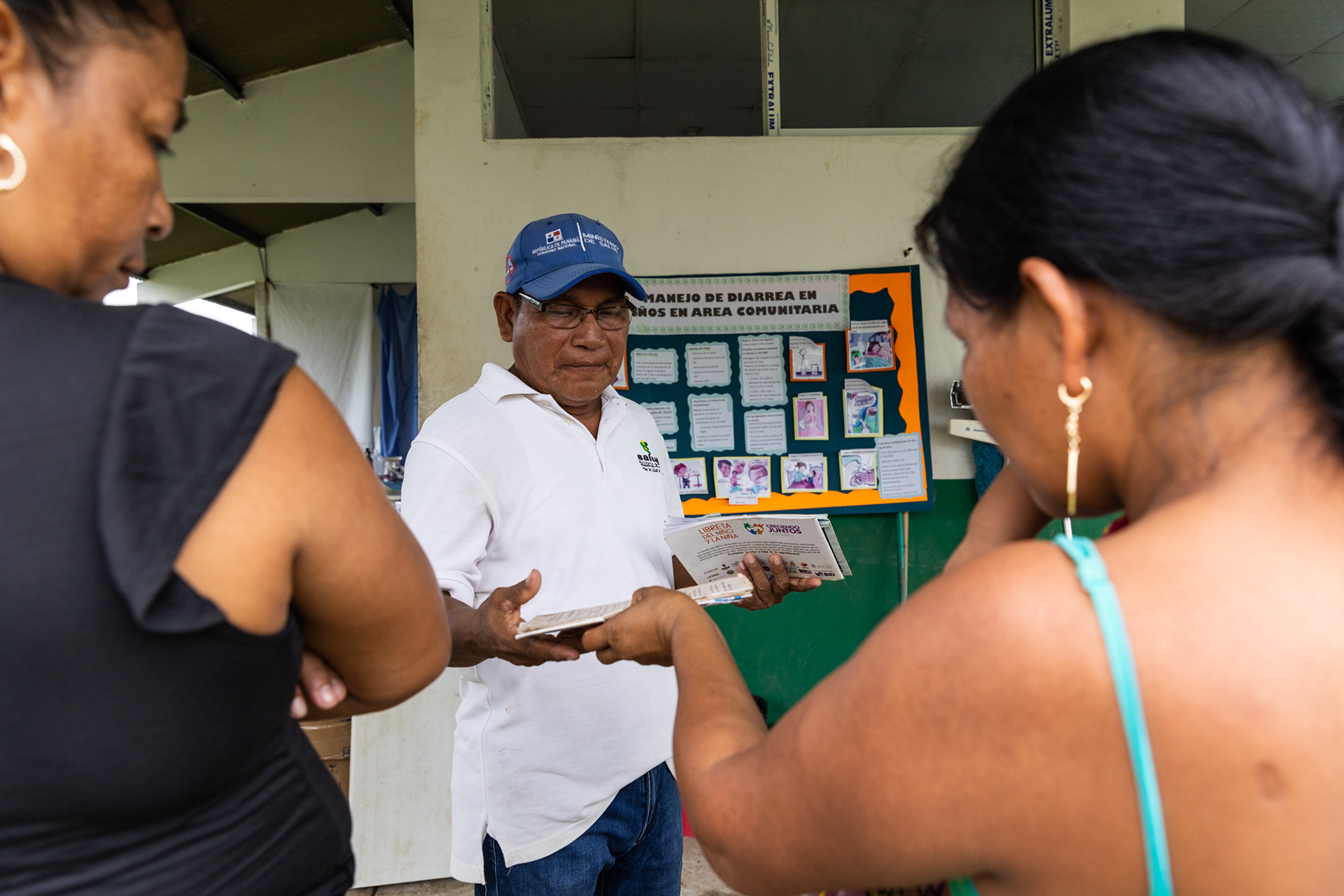
Two Emberá women wait at a health center built to serve migrants, now benefiting local residents with improved healthcare access.
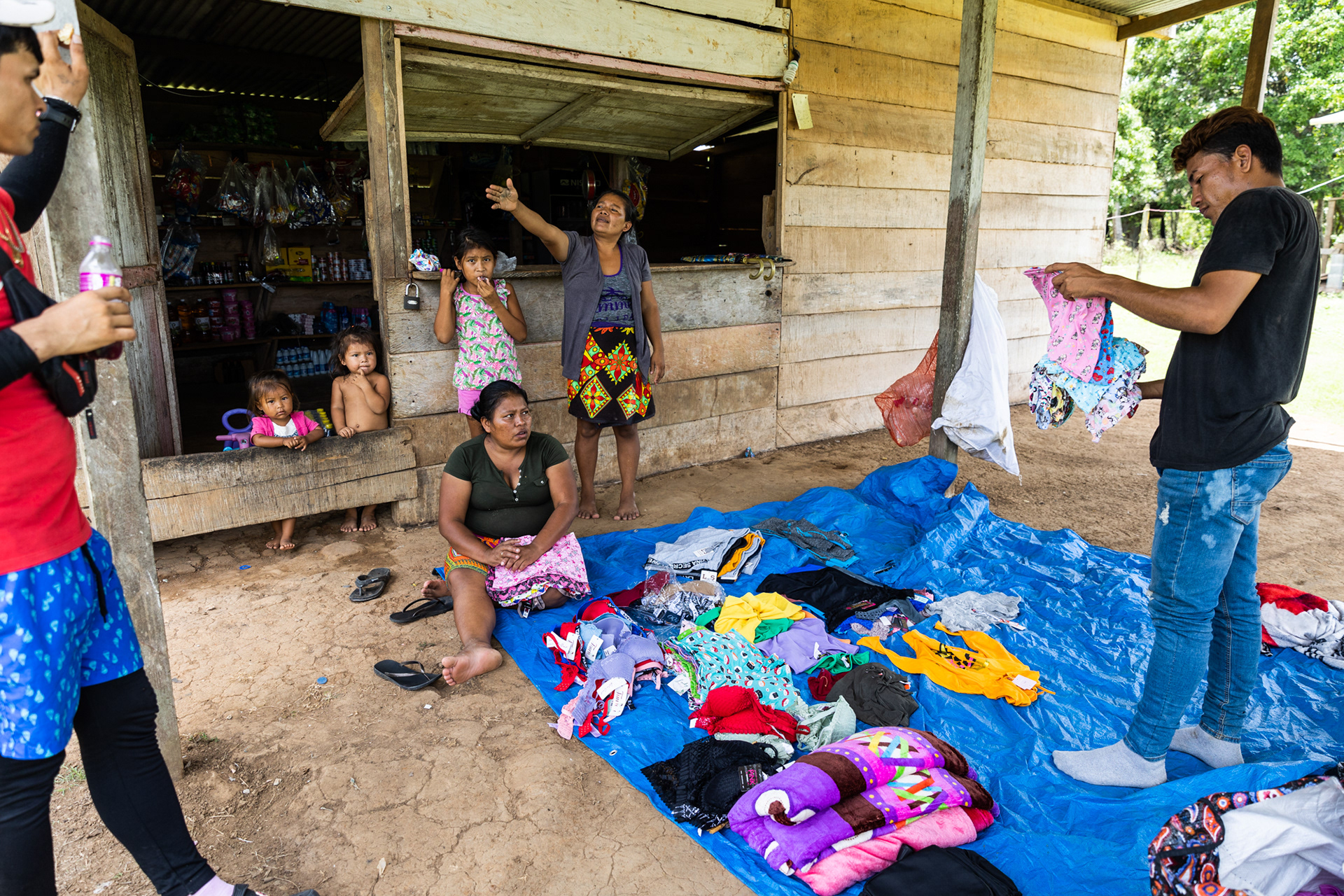
An Emberá family arranges inventory at their clothing store, preparing for the steady flow of migrants needing supplies.

Leonides Cunampia travels by canoe, visiting communities along the Turquesa River to assess the impact of water pollution.
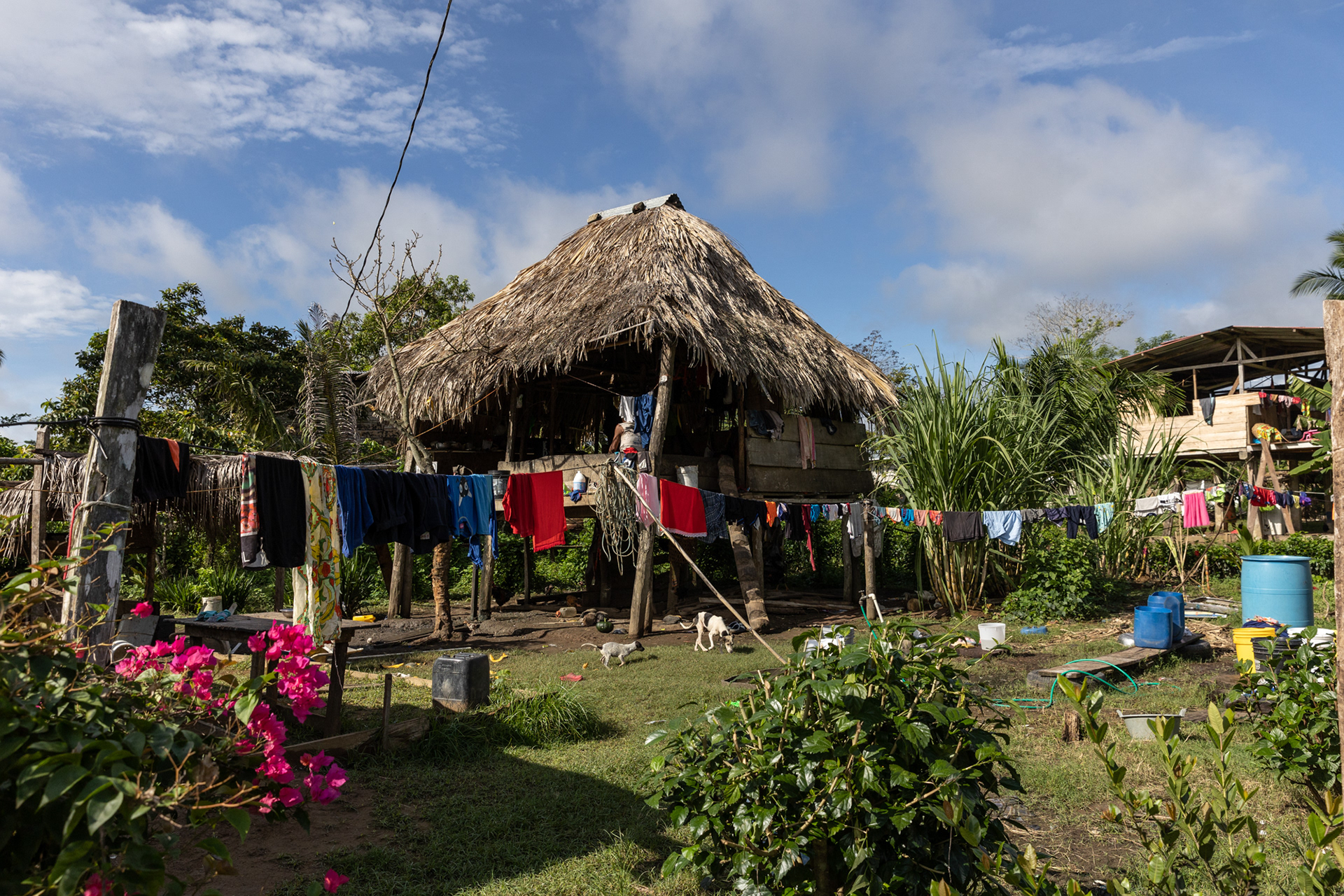
A traditional Emberá home made of wood and open space, slowly being replaced by concrete structures as businesses expand.

A young Emberá boy holds a baby iguana on a leash, which may be kept as a pet or used as food when it matures.
